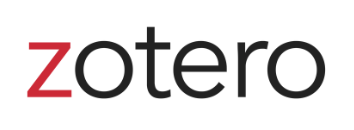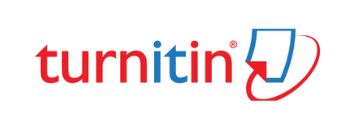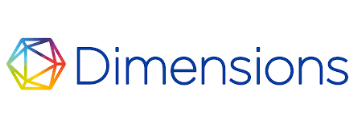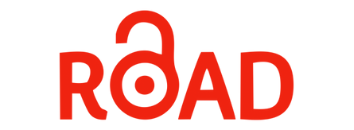THE ROLE OF CAREER DEVELOPMENT TOOLS IN ENHANCING PROACTIVE BEHAVIOR
DOI:
https://doi.org/10.24002/kinerja.v22i1.1566Abstract
This study aims at measuring the relationship between career development tools and proactive behaviour using self-report questionnaires collected from workers at an oil and gas service company in Peninsular Malaysia. The results of linear regression analysis displayed two major findings: first, job autonomy was positively and significantly related to proactive behaviour. Second, transformational leadership was positively and significantly related to proactive behaviour. In overall, this result demonstrates that the career development tools act as an important predictor of employees’ proactive behavior in the organizational sample. Further, this study provides discussion, implications and conclusion.
Keywords: Career Development Tools, Proactive Behavior, Malaysia, SPSS
References
Anitha, J. and Aruna, M., 2016. Enablers of employee engagement of Gen Y at the workplace with reference to Automobile Sector. Amity Journal of Training and Development, 1(1), pp.93-108.
Antoniu, E., 2010. Career planning process and its role in human resource development. Annals of the University of Petroşani, Economics, 10(2), pp.13-22.
Azman, I., Wan Aishah, W.M.N., Nurrul Hayati, A., Hasan Al-Banna, M. and Raja Rizal Iskandar, R.H., 2015. Hubungan antara peranan pengurus dalam program kerjaya dengan pembangunan kelakuan proaktif pekerja. Global Journal Al-Thaqafah, 5(1), pp.81-103.
Barnett, B.R. and Bradley, L., 2007. The impact of organisational support for career development on career satisfaction. Career Development International, 12(7), pp.617-636.
Bass, B. and Riggio, R., 2006. Transformational leadership. 2nd ed. Mahwah, N.J: Lawrence Erlbaum Associates.
Bass, B.M. and Avolio, B.J., 1994. Improving organizational effectiveness through transformational leadership. Thousand Oaks, CA. Sage Publications.
Bloomfield, G., 2015. 8 reasons why you should work in the oil and gas sector. Available at: https://engineering-jobs.theiet.org/article/8-reasons-why-you-should-work-in-the-oil-and-gas-sector/ [Accessed 10 July 2017].
Bocciardi, F., Caputo, A., Fregonese, C., Langher, V. and Sartori, R., 2017. Career adaptability as a strategic competence for career development: An exploratory study of its key predictors. European Journal of Training and Development, 41(1), pp.67-82.
Breaugh, J.A., 1985. The Measurement of Work Autonomy. Human Relations, 6, pp.551-570.
Callow, N., Smith, M.J., Hardy, L., Arthur, C.A. and Hardy, J., 2009. Measurement of transformational leadership and its relationship with team cohesion and performance level. Journal of Applied Sport Psychology, 21, pp.395-412.
Chin. W.W., 2001. PLS-Graph User’s Guide: Version 3.0. Houstan, TX: Soft Modelling.
Clarke, M., 2017. Building employability through graduate development programmes: A case study in an Australian public sector organisation. Personnel Review, 46(4), pp.792-808.
Crant, J.M., 2000. Proactive behavior in organizations. Journal of Management, 26(3), pp.435-462.
Crawford, R., Monson, K. and Searle, J., 2016. Mentoring tertiary students from a secondary school incubator programme focusing on health careers: Findings from a New Zealand study. Journal of Applied Research in Higher Education, 8(4), pp.424-438.
Creswell, J.W., 1998. Qualitative Inquiry and Research Design: Choosing Among Five Traditions. London: Sage Publications.
De Jong, J.P.J., Parker, S.K., Wennekers, S. & Wu, Chia-Huei. 2015. Entrepreneurial behavior in organizations: Does job design matter? Entrepreneurship Theory and Practice 39(4): 981-995.
Edwin, A. 2015., Training and development in the Oil and Gas Industry. Journal of Business Administration and Management Sciences Research, 4(9), pp.197-207.
Fiedler, F.E., 1964. A contingency model of leadership effectiveness. In L. Berkowitz (Ed.), Advances in experimental social psychology, 1, 149-190. Academic Press, New York, USA.
Fiedler, F.E., 1967. A Theory of Leadership Effectiveness. New York, USA: McGraw-Hill
Fogelqvist, P. and Lestander, H., 2017. Transformational leadership and motivation in sport: The moderating role of personality and self-other agreement ratings. Master thesis. Umea University.
Forret, M.L. and Dougherty, T.W., 2001. Correlates of networking behavior for managerial and professional Employees. Group & Organization Management. (25), pp.283-311.
Frese, M. and Fay, D., 2001. Personal initiative: An active performance concept for work in the 21st century. Research in Organizational Behavior, 23, pp. 133-187.
Gagne, M. and Deci, E.L., 2005. Self-determination theory and work motivation. Journal of Organizational Behavior, (26), pp.331-362.
Gomez-Mejia, L.R., Balkin, D. and Cardy, R., 2016. Managing Human Resources. 8th ed. Hoboken, NJ: Pearson.
Goussinsky, R., 2015. Customer aggression, felt anger and emotional deviance: The moderating role of job autonomy. International Journal of Quality and Service Sciences, 7(1), pp.50-71.
Guerrero, S., Jeanblanc, H. and Veilleux, M., 2016. Development idiosyncratic deals and career success. Career Development International, 21(1), pp.19-30.
Hadjisolomou, A., 2015. Managing attendance at work: The role of line managers in the UK grocery retail sector. Employee Relations, 37(4), pp.442-458.
Hair, J.F., Anderson, R.E., Tatham, R.L. and Black, W.C., 1998. Multivariate Data Analysis. 5th ed. New Jersey: Prentice Hall International, Inc.
Harhara, A.S., Singh, S.K. and Hussain, M., 2015. Correlates of employee turnover intentions in oil and gas industry in the UAE. International Journal of Organizational Analysis, 23(3), pp.493-504.
Herzberg, F., 1966. Work and the Nature of Man. Cleveland: World Publishing Company.
Huang, Y.M., 2016. Networking behaviour: From goal orientation to promotability. Personnel Review, 45(5), pp.907-927.
Idris, A.M. and Manganaro, M., 2017. Relationships between psychological capital, job satisfaction, and organizational commitment in the Saudi oil and Petrochemical industries. Journal of Human Behavior in the Social Environment, 27(4), pp.251-269.
Insala., 2017. Career development: the benefits. Available at http://www.insala.com/career-development-benefits.asp [Accessed 11 July 2017).
King, Z., 2004. Career self-management: its nature, causes and consequences. Journal of Vocational Behavior, 65, pp.112-133.
Marinova, S.V., Peng, C., Lorinkova, N., Dyne, L.V. and Chiaburu, D., 2015. Change-oriented behavior: A meta-analysis of individual and job design predictors. Journal of Vocational Behavior 8, pp.104-120.
Montgomery, A.R., 2017. Impact of job characteristics and resources on person-job fit. Master thesis. Faculty of California State University, San Bernardino.
Northouse, P.G., 2013. Leadership: Theory and Practice. Sixth Edition. Thousand Oaks: Sage Publications, Inc
Nunally, J.C. and Bernstein, I.H. 1994. Psychometric Theory. New York: McGraw-Hill.
OilJobFinder., 2017. Your gateway to oil and gas industry jobs. Available at http://www.oiljobfinder.com/ [Accessed 12 July 2017].
Owens, J.J., 2009. Examining the relationship between proactive personality and career success. Master thesis. The University of Tennessee at Chattanooga.
Paramitha, A. and Indarti, N., 2014. Impact of the environment support on creativity: Assessing the mediating role of intrinsic motivation. Procedia - Social and Behavioral Sciences, 115, pp.102-114.
Parker, S.K., Williams, H.M. and Turner, N., 2006. Modeling the antecedents of proactive behavior at work. Journal of Applied Psychology, 91(3), pp. 636-652.
Parrish, D.A., 2001. The impact of leadership behavior on organizational commitment and job autonomy of information services Librarians. Doctoral dissertation. The Florida State University.
Rank, J., 2006. Leadership predictors of proactive organizational behavior: Facilitating personal initiative, voice behavior, and exceptional service performance. Graduate School Theses and Dissertations. University of South Florida.
Rono, E.J. and Kiptum, G.K., 2017. Factors affecting employee retention at the University of Eldoret, Kenya. Journal of Business and Management, 19(3), pp.109-115.
Saragih, S., 2011. The effects of job autonomy on work outcomes: Self efficacy as an intervening variable. International Research Journal of Business Studies, 4(3), pp.203-215.
Sekaran, U., 2000. Research Methods for Business: A Skill Building Approach. New York: John Wiley & Sons, Inc.
ShaleNET. 2013. A Guide to careers in the oil and natural gas industry. Available at http://careerguide.shalenet.org/Content/guides/CareerGuide2013.pdf [Accessed 10 July 2017].
Sia, S.K. and Appu, A.V., 2015. Work autonomy and workplace creativity: Moderating role of task complexity. Global Business Review, 16(5), pp.772-784.
Suifan, T.S. and Al-Janini, M., 2017. The relationship between transformational leadership and employees’ creativity in the Jordanian Banking Sector. International Review of Management and Marketing, 7(2), pp.284-292.
Wong, S.C., Mohd Rasdi, Roziah., Abu Samah, Bahaman and Abdul Wahat, Nor Wahiza., 2017. Promoting protean career through employability culture and mentoring: Career strategies as moderator. European Journal of Training and Development, 41(3), pp.277-302.
Wright, L.L., 1996. Qualitative International Management Research. In: Punnett, B.J., and Shenkar, O (Eds.), Handbook for International Management Research (pp. 63-81). Oxford, UK: Blackwell Publishers Inc.
Wu, C.H. and Parker, S.K., 2017. The role of leader support in facilitating proactive work behaviour: A perspective from attachment theory. Journal of Management, 43(4), pp.1025-1049.
Yang, F. and Chau, R., 2016. Proactive personality and career success. Journal of Managerial Psychology, 31(2), pp.467-482.
Yu, J., 2010. Careers in the oil and gas industry, from start to finish. Available at http://talentegg.ca/incubator/2010/11/22/careers-in-the-oil-and-gas-industry-from-start-to-finish/ [Accessed 11 July 2017].
Zee, W.V.D., 2016. Managing high potential employees: the impact of transformational leadership on behavioural outcomes and the moderation effect of role stress. Master thesis, School of Social and Behavioural Science, Tilburg University.














